Happy Quick Lit day! I have lots of books to share with you today, including a couple I loved and a lot that I didn’t (but that I still enjoyed reviewing). Let’s get right to ’em!
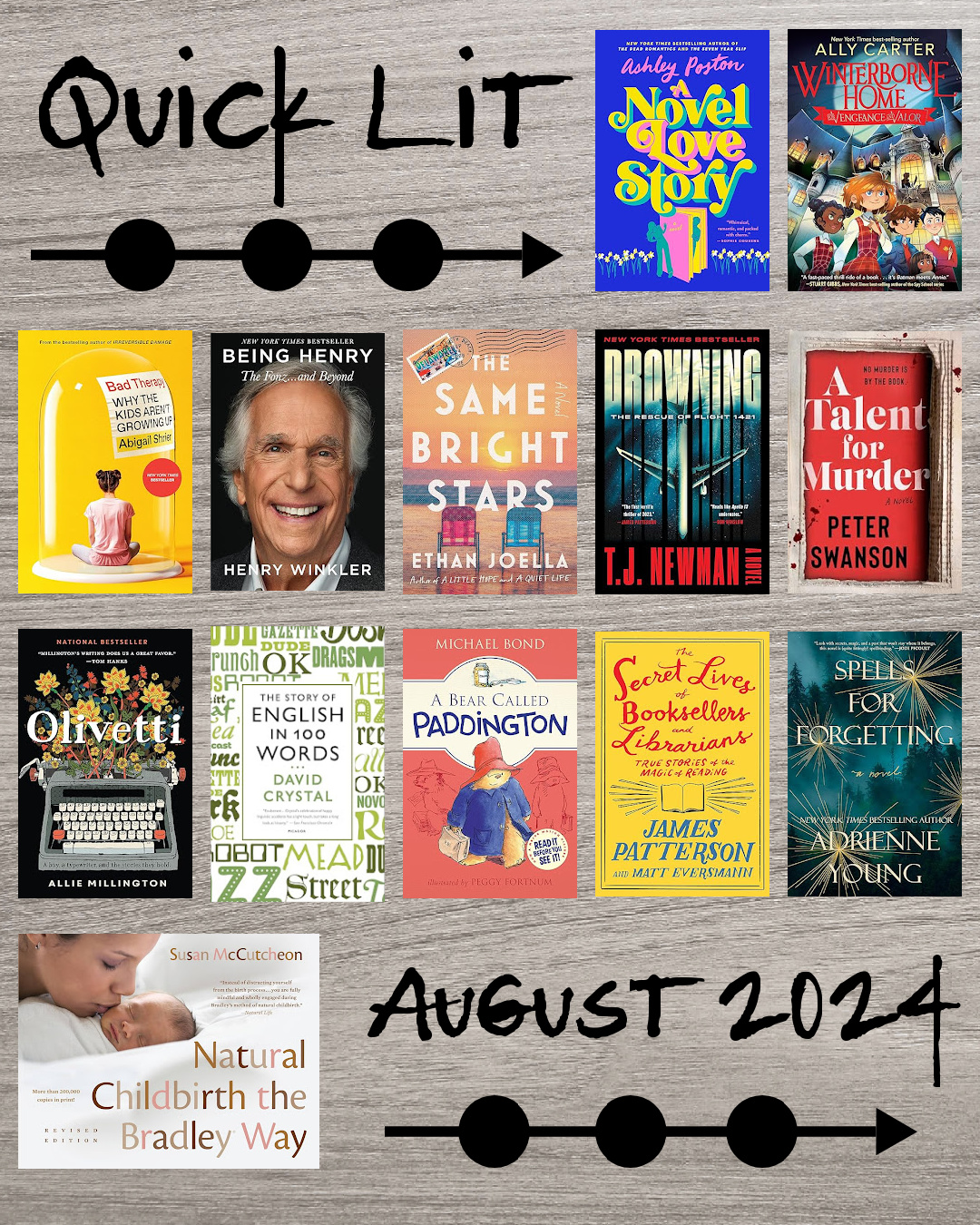
NONFICTION
The Story of English in 100 Words, by David Crystal: If you are reading this review, you are familiar with—and probably quite comfortable with—the English language. We use it all day, every day, but how much do we know about the origins of our language, let alone the history of each word? In this fascinating work, linguistics expert David Crystal offers a deep dive into the English language through the examination of 100 pivotal words, with short chapters devoted to each one.
The book takes a chronological view of language, beginning with the first known English word (Roe, which dates to the 5th Century) and ending with Twittersphere, a 21st-century word that epitomizes new directions for our language in the modern era. Each word was carefully selected to highlight a specific trend, aspect of English, or societal/sociological insight. There are ancient words like Lea (an example of an Anglo-Saxon place-name element) and Mead (which was more than just a drink, but also a symbol of power); heavy-hitting grammar words like And and Out; impolite words (Arse) and legal words (Chattels); words borrowed from other languages (Potato) and words that are combinations (Brunch) or unique lexicological choices (Dilly-dally, Ain’t); slang words (Dude, LOL) and fictional words (Muggle, Double Speak); silly words (Fopdoodle) and made up words (Bagonise, Chillax) and words that have been shaped by—or have themselves shaped—technology (Hello, DNA, App). I loved hearing about each word’s origins and its place in the development of our language. The individual word histories are interesting on their own, and the picture they form when pieced together gave me a deeper appreciation for the intricacies of linguistics.
This book could easily have devolved into a straightforward dictionary-style roundup, but the author brings in humor, factoids, and stories that make this a really fun read. I encountered several surprises, including a number of words I’d never heard of and many unexpected connections to other languages or historical events. Some words I’d assumed were newer additions have been around for centuries, while other words I’d considered old are actually rather modern. The author is British, and his commentaries on the differences between British and American English are also interesting.
I listened to the audiobook and enjoyed that format, but was glad to have a Kindle copy on hand as well so that I could follow along. This was helpful in noting the spellings of words or reviewing details I didn’t quite catch while listening. This would be a fun homeschooling resources for High School students; I even enjoyed sharing a few of my findings with my younger kids.
My Rating: 4 Stars // Book Format: Audiobook
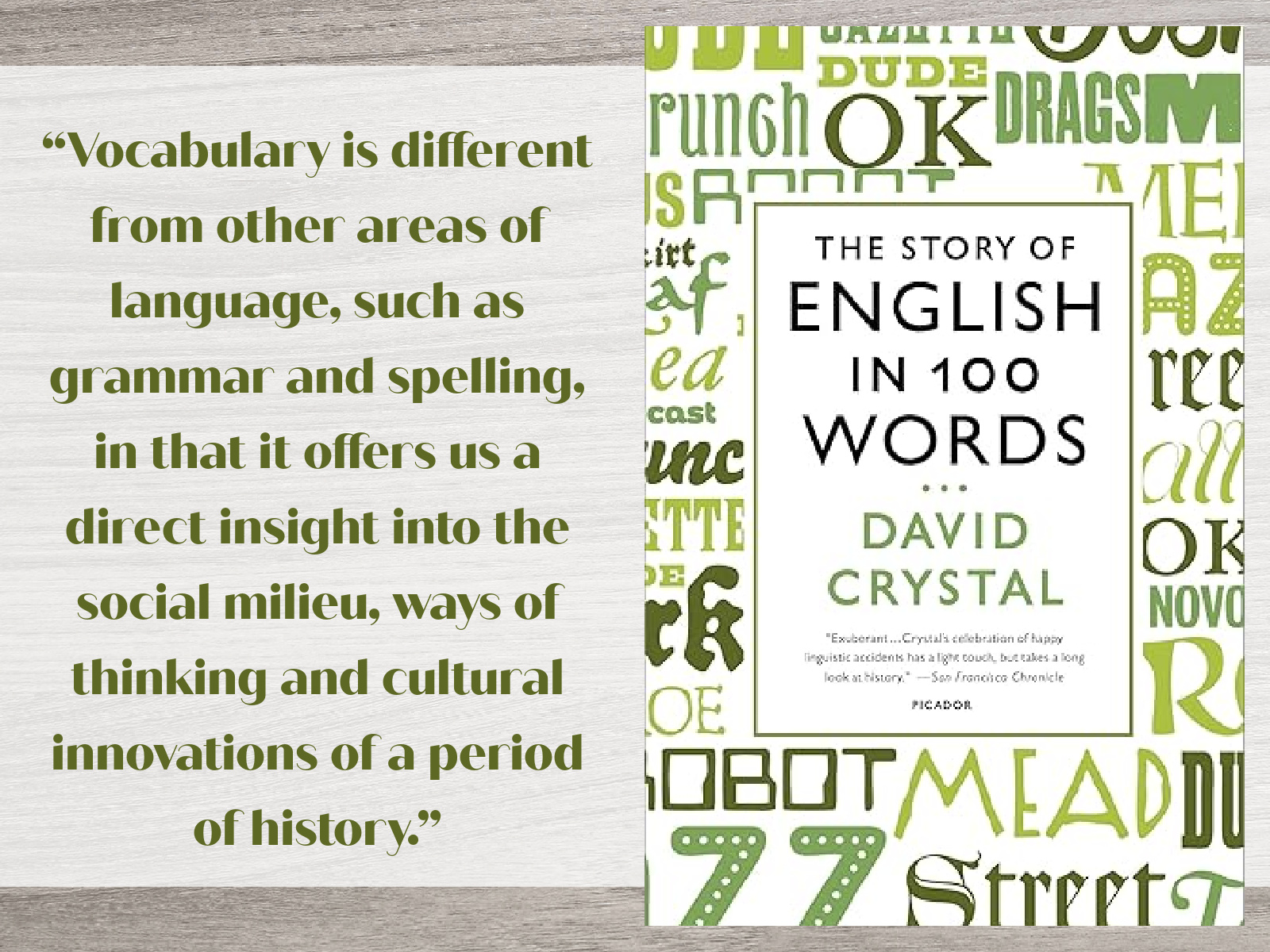
Natural Childbirth the Bradley Way, by Susan McCutcheon: Luke and I participated in an extensive, months-long Bradley childbirth class back in 2014 in preparation for my first labor and delivery. Though Charleston’s birth didn’t go exactly as planned, I attribute the preparation we received in that class for my ability to undergo more than 24 hours of unmedicated labor that resulted in the intervention-free delivery of a healthy baby boy. Unfortunately I was not given the opportunity to deliver the twins naturally due to their breech position, but we are hoping to have a drug-free VBAC with our fourth baby, and Luke and I wanted to review the Bradley methods as we prepare for baby’s arrival.
I would not recommend this book as a substitute for the experience of a comprehensive Bradley class, but the book was a great refresher. After introducing the Bradley Method and explaining its benefits and differences from other approaches to childbirth, the author walks readers through the stages of birth, providing detailed explanations for what to expect in each phase and how these stages can be navigated. The book ends with an examination of controversies around labor (inductions, c-sections, episiotomies, etc.) and lays out evidenced-based arguments for natural birth that avoids such interventions wherever possible.
I struggled with a lot of the messaging in this book—particularly the vehemence against non-natural methods, the not-so-subtle shaming of women who choose different approaches to childbirth, and the too-rosy picture it paints of some of the grittier parts of birthing a child. But the middle section of the book, with its detailed and practical exercises and clear explanations, is absolutely golden. I especially love the emphasis on the coach’s role, which helps Dad feel included in labor and takes a lot of the pressure off of the laboring woman. This aligns well with Luke’s and my approach to parenting in general and labor in particular, and I believe that our original Bradley training ten years ago really set us up to be partners in all things parenting. Revisiting the methods through this book reiterated those roles for us and was just as essential (maybe more so) for Luke to read as it was for me.
There are a lot of unknowns about my upcoming labor, and I am holding my hopes for another unmedicated birth very loosely. But I do feel that those original Bradley courses and the refresher that came through this book have given me the best chances at having the labor I desire.
My Rating: 4 Stars // Book Format: Audiobook (Followed along on Kindle, which was helpful for the many illustrations and guided meditations.)
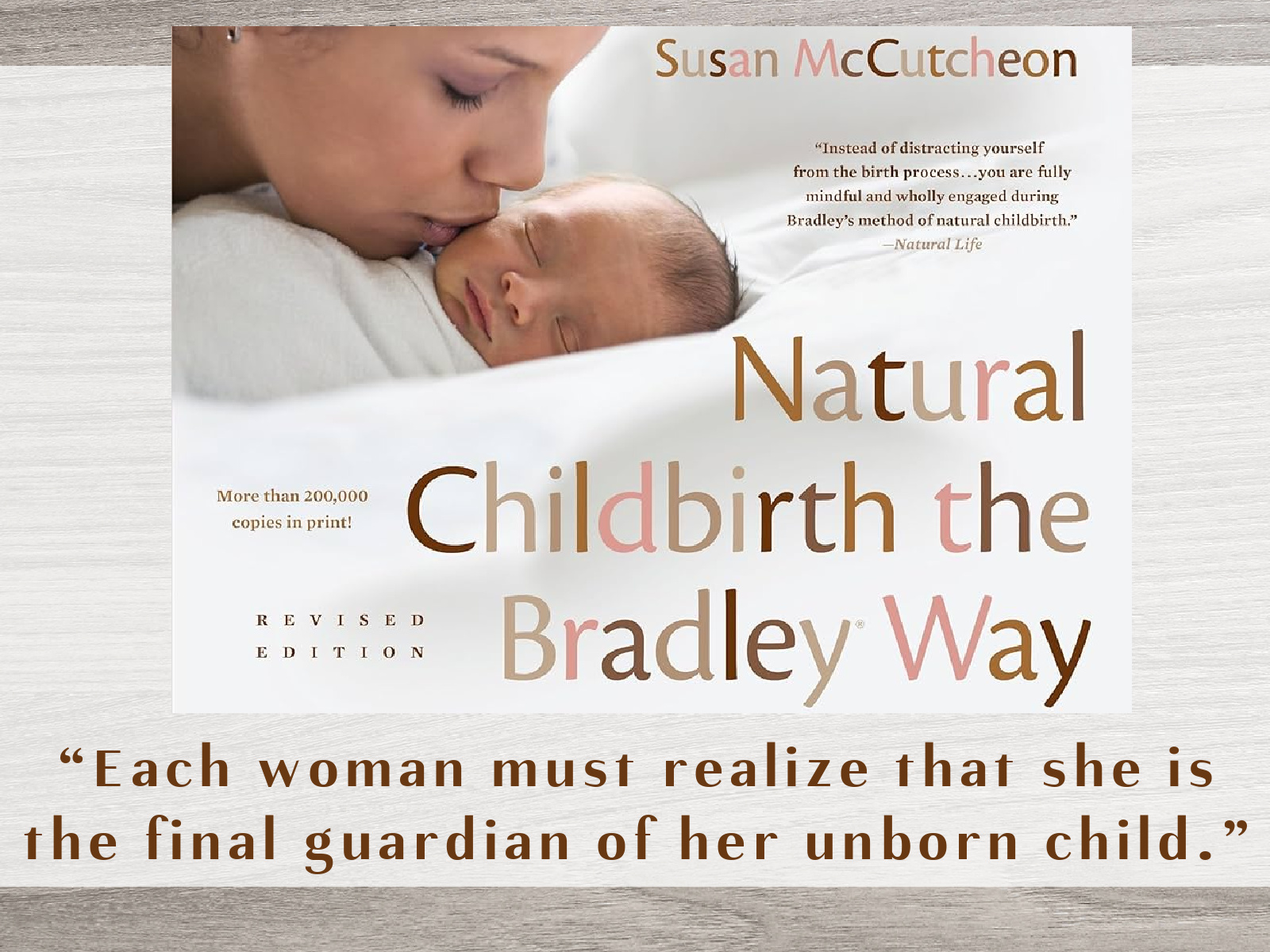
The Secret Lives of Booksellers and Librarians, by James Patterson: I LOVE booksellers and librarians. What book lover doesn’t? I’ve even fantasized about opening my own book store or going back to school to become a librarian, and I’m sure many of my fellow bibliophiles share this dream. So I was beyond excited to get my hands on this compilation of behind-the-scenes stories from real-life booksellers and librarians across the country.
Sadly, this was a huge disappointment. There are some interesting stories (I especially enjoyed hearing from the prison librarian, and inspiring stories from individuals who struggled to learn to read and now help young readers facing that same struggle). But after a couple of essays, the stories all began running together. In place of details about the business of book-pedaling, or insights into the challenges of working in this field (beyond the countless stories about “handling” library patrons and bookstore customers wanting to “cancel” certain titles), we are offered vague platitudes and story after story of individuals who love books and have turned their hobby into their job—interesting, but repetitive and not especially story-worthy. I struggled with the writing style, especially the use of the present tense (even when sharing stories about individuals’ pasts and childhoods), and I wish the essays were told in the storytellers’ own voices rather than those of the coauthors; this certainly would have added some diversity and color to the narration. Some structure to the compilation would also have helped, as would the inclusion of stories from international booksellers and librarians.
I couldn’t help but roll my eyes at the constant James Patterson name-dropping and would have liked to hear about other titles these book-lovers enjoy and recommend, not just Patterson’s. But most disappointing of all was the heavy leftist political agenda that comes through in nearly every story. A book about books is a wonderful opportunity to unite a community around a shared love; instead, the authors have alienated and disparaged huge swaths of the reading community who do not share their brand of politics.
My Rating: 2 Stars // Book Format: Audiobook (I did enjoy the variety of readers, which added a much-needed change of pace to an otherwise tedious book. In print, this likely would have been a 1-star book for me.)
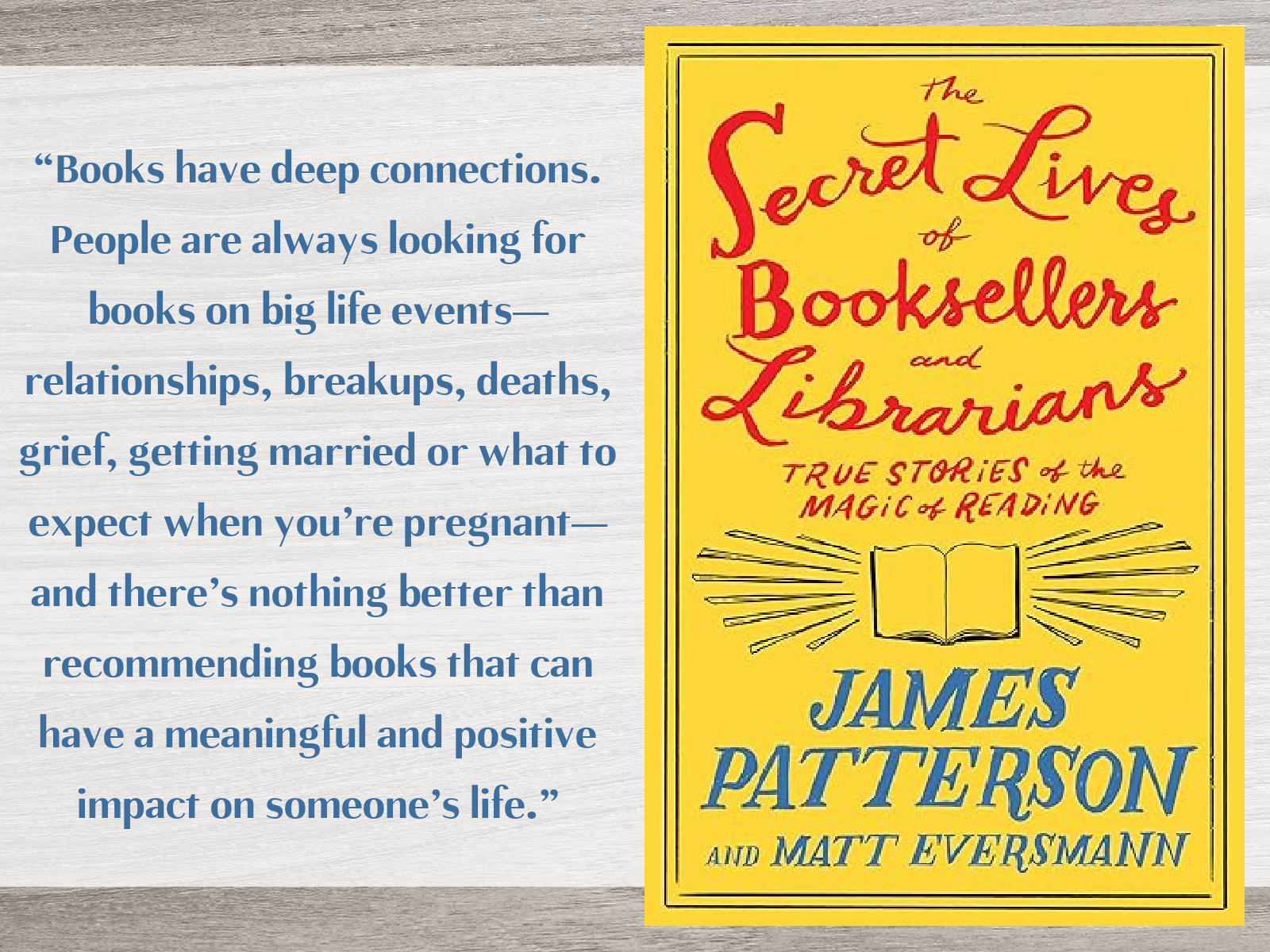
Bad Therapy: Why Kids Aren’t Growing Up, by Abigail Shrier: It can’t be denied that Gen Z’s mental health is worse than any other generation in recorded history: adolescent suicide and prescriptions for antidepressants are up, coping skills and social engagement are down, and kids are not just reporting but demonstrating that they are not okay. But the questions remain: what has caused this dramatic downturn of mental wellness, and what can be done about it? In this controversial and groundbreaking book, Abigail Shrier—the journalist who blew open the conversation about the transgender craze in adolescent girls—argues that the biggest culprit behind the woes of today’s teens is in the last place you would expect: the therapist’s office.
Drawing from hundreds of interviews with child psychologists, parents, educators, and teens themselves, Shrier explores the ways that mental health experts have done irreversible damage to the kids they claim to be helping. From an overemphasis on emotions that fosters rumination and plants seeds of anxiety and depression, to Social Emotional Learning in classrooms that disempowers the most vulnerable students, to the string of surveys and forced therapy sessions that cultivate victimhood and exacerbate the perceived damages of (often-imagined) trauma, we have coddled our children into a mental heath crisis that can no longer be ignored. Parents are also complicit, as Shrier illuminates in the chapter on the damages of the Gentle Parenting movement that has emotionally stunted our children while leaving parents defeated.
The ideas in this book are antithetical to nearly every parenting and therapy book I’ve read, and until recently I would have balked at Shrier’s message. My own experience actually goes against much of what Shrier states in her book, as I personally benefitted from therapy as well as antidepressants as a teen (I believe these were necessary interventions for me when I experienced a life-threatening eating disorder at 15). But the trends I’ve witnessed in younger generations have me convinced that Shrier is onto something. I see how parents, educators, and mental health experts have gone too far with our diagnosing and coddling and therapizing, to the detriment of the resilience, agency, and overall well-being in an entire generation. I do not believe that bad therapy is the ONLY culprit, but it is likely the most prevalent offender, and absolutely one that needs to be acknowledged, discussed, and addressed.
There are parts of this book that downright terrified me (such as the extreme measures being taken by schools to distance students from their loving and well-meaning parents), and many sections that convicted me of my own tendencies to coddle my children. I imagine this will be a hard read for many, as it forces us to reevaluate everything we thought we knew about emotions, trauma, and how we cope. It also shakes many of us out of our comfort zones as it calls parents and educators to a new standard that involves fewer convenient diagnoses and medications and more accountability and toughness. It might even cause you to reevaluate your own relationship with therapy and your personal emotional sensitivity. (I know it did for me.) But I believe unequivocally that this book is necessary, and if you work with children or have children of your own, I implore you to give it a read.
My Rating: 5 Stars // Book Format: Audiobook
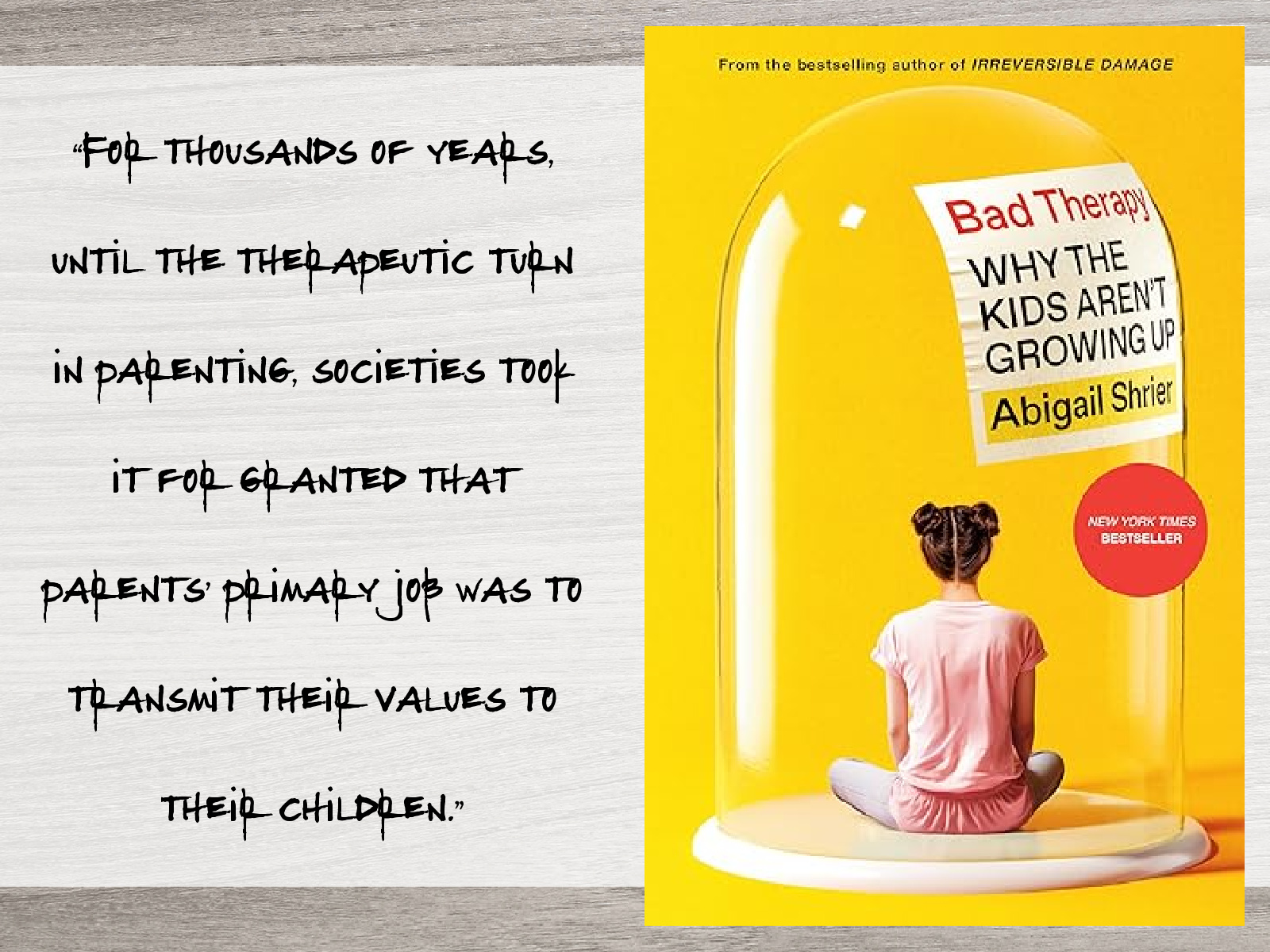
Being Henry: The Fonz . . . and Beyond, by Henry Winkler: I rarely repeat publishers’ blurbs in my reviews, but this one is too perfect not to share: “Brilliant, funny, and widely-regarded as the nicest man in Hollywood (though he would be the first to tell you that it’s simply not the case, he’s really just grateful to be here), Henry Winkler shares in this achingly vulnerable memoir the disheartening truth of his childhood, the difficulties of a life with severe dyslexia, the pressures of a role that takes on a life of its own, and the path forward once your wildest dream seems behind you.”
I grew up watching Henry Winkler in his trademark role of “The Fonz” on Nick-at-Night reruns of Happy Days, and I’ve enjoyed seeing him pop up in various other roles since. But I had no inkling that the man behind these roles was so much more than just another Hollywood talent. In Being Henry, I got to meet this man on a whole new level and came away with the utmost respect for the actor. I’ve read dozens of celebrity memoirs, but few have left me with such warm thoughts towards the author. This one had me convinced that Henry Winkler really must be one of the kindest and most charming celebrities out there.
Winkler has not always been the vulnerable, kind-hearted, self-aware man that he is now. In sharing about his rough childhood (with parents who were truly terrible), his abrupt rise to fame, and his subsequent years of struggling to get work in Hollywood, he is honest about the pretentiousness of his youth, his decades-long desire to distinguish himself (a classically trained actor) from his best-known role, his insecurities, and his emotional unavailability. He does not hide or excuse his flaws, but we also see how far he has come in both his career and his role as a dedicated family man.
In addition to being warm, genuine, and charming, Winkler is uproariously funny. His brand of dry, self-deprecating humor is my favorite, and he had me chuckling even as he dropped buckets of truth and insight into his narration. I thoroughly enjoyed the audiobook, read in Winkler’s soothing voice with passages read by his wonderful wife, Stacey.
This will be a hit with fans of Henry Winkler, but you don’t need to know much about the actor to appreciate this insightful and inspiring story of a remarkable actor who appears to be an even greater man.
My Rating: 4.5 Stars (Rounded to 4 stars on Goodreads.) // Book Format: Audiobook (HIGHLY recommend!)
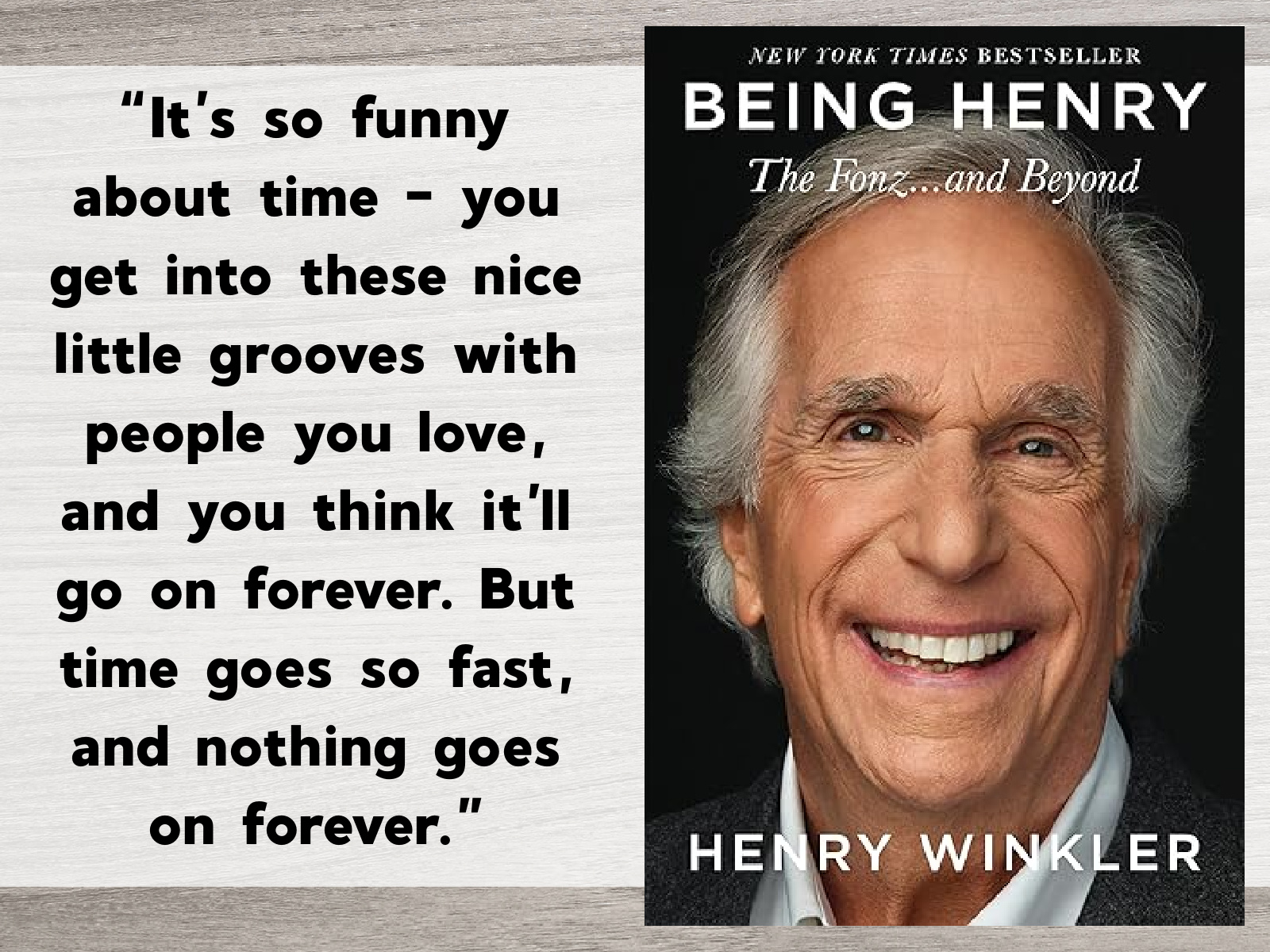
MIDDLE GRADE FICTION
A Bear Called Paddington, by Michael Bond: When the Brown family comes across a polite, good-hearted, and accident-prone bear from “darkest Peru”, they give him a name—“Paddington,” for the train station where they first encountered him—and bring him home. Since then, their lives have been filled with one misadventure after another: from run-ins with the shopkeepers at the Portobello Road market, to an eventful trip to the opera; a magic show gone wrong, to a surprise win in a painting competition. There’s never a dull moment with Paddington around! But nobody can help but adore this lovable bear.
Can you believe I’d never read this classic story that was first published in 1958? I’m glad we gave it a chance, because the kids and I were all charmed by this whimsical, humorous tale. There’s nothing especially groundbreaking about this book (but perhaps it was original for its time?), but we found the stories and characters quite sweet, and the storytelling is comforting and fun. I can see how this bear has earned his way into the hearts of generations of readers.
Side note: We followed up this book with a viewing of the 2015 Paddington film, which we liked even more than the book!
My Rating: 4 Stars // Charleston’s Rating: 5 Stars // Book Format: Print
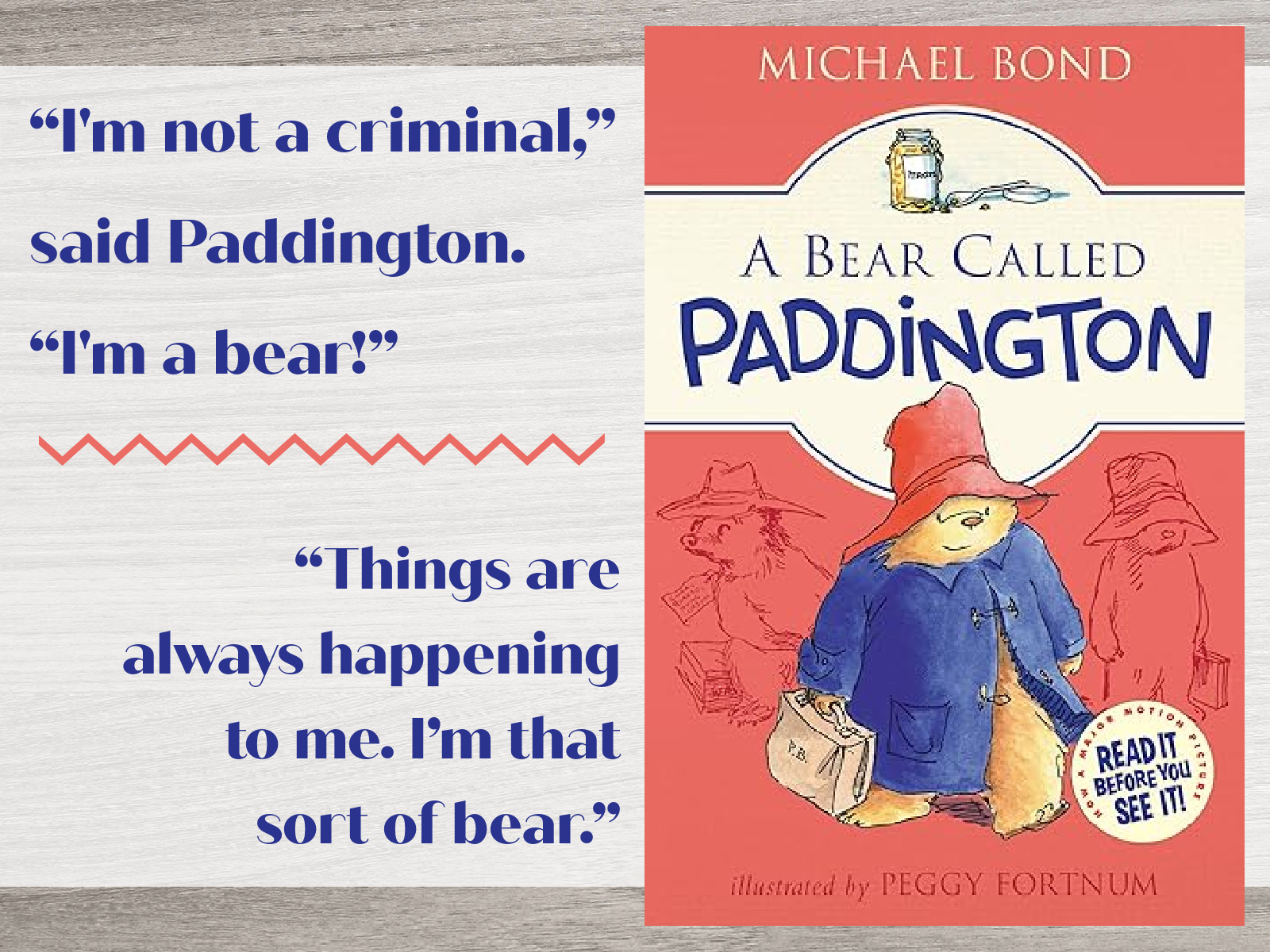
Winterborne Home for Vengeance and Valor, by Ally Carter: April has spent her life bouncing from one foster home to the next. But she’s not like the other orphaned kids she encounters, because she has a mom . . . a mom who left her as a baby with a mysterious key and a promise to one day return. April just KNOWS her mom will make good on her promise some day soon. But everything changes for April—including what she thought she knew about her mom and her legacy—when she is invited to come stay at the Winterborne Home, an enormous mansion once occupied by the long-deceased Winterborne family and now home to a collection of orphans, a proper butler, and their warmhearted (but secret-holding) guardian. The Winterborne Mansion is hiding many secrets, among them the question of what really happened to the one surviving Winterborne ten years ago. Where has he gone, and is he coming back? And if he does return, what will that mean for the orphans that now call the mansion home?
This exciting novel packs in all the tropes we love about this brand of Middle Grade: precocious orphans, long-lost secrets, found family, a mysterious house, and more than a few quirky characters. Though the pacing is a little off, the kids and I enjoyed this exciting story and especially April who is smart, spirited, and spunky. It’s a modern story with an old-fashioned flair—a novel for both kids and adults to enjoy. I’m glad we read it as a family, as it’s on the older end of appropriateness for Middle Grade with some frightening moments and difficult themes related to the kids’ trauma and challenges in the foster system.
My Rating: 4 Stars // Book Format: Kindle
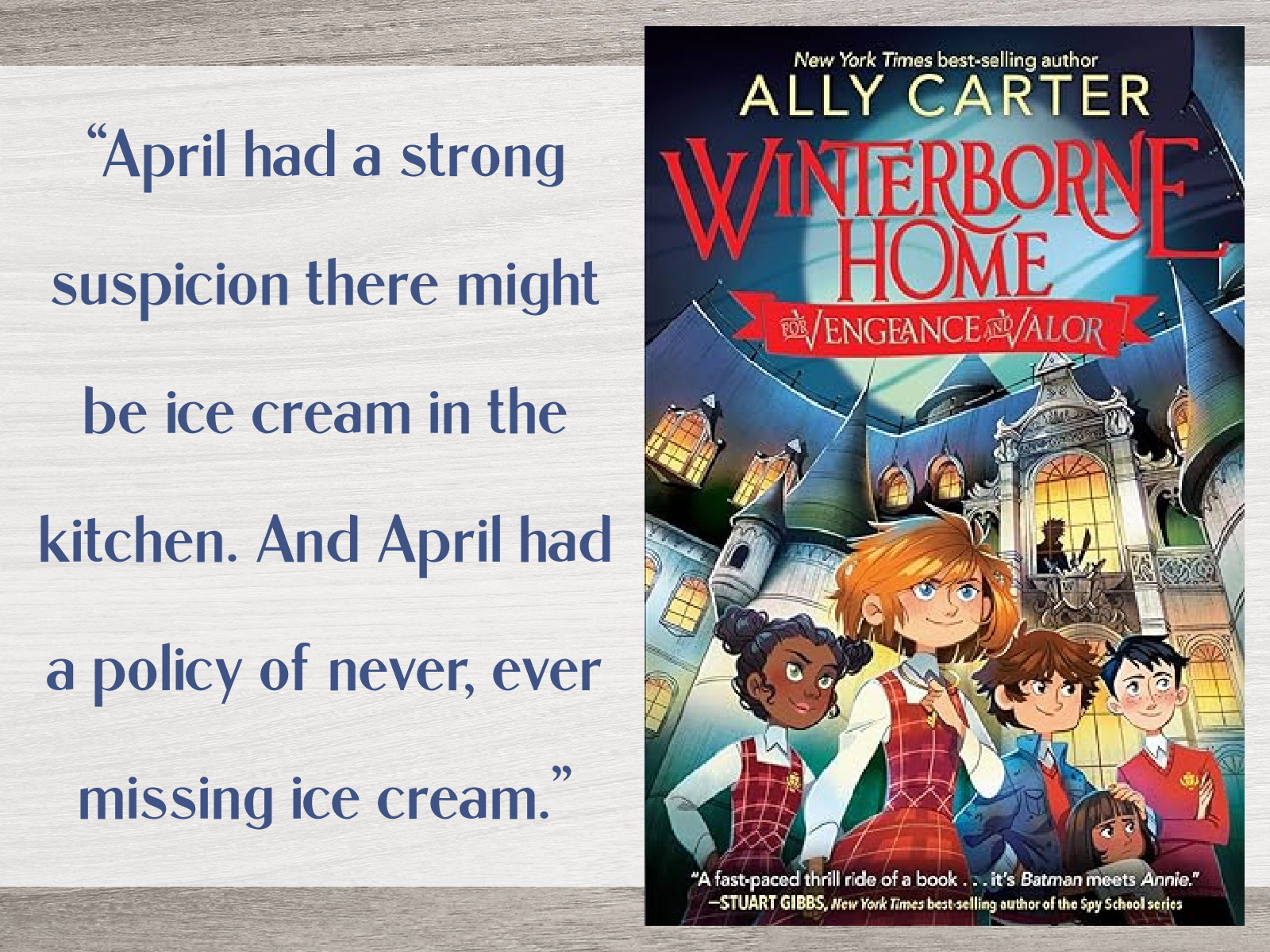
Olivetti, by Allie Millington: Olivetti knows a lot about the Brindle family. As a typewriter, he doesn’t participate in all of the household events, but from his prominent spot on mom Beatrice’s desk, he’s watched the four Brindle kids—including twelve-year-old Ernest—grow up, helped Beatrice document every family memory, noticed dad Felix’s growing obsession with work (which he does on that loathed piece of technology, a computer) and observed the heartbreaking changes in the family over the past few years when they all experienced their horrific Everything That Happened. With so much history between them, Olivetti thought he was a valued part of the family. . . until the unexpected day when Beatrice packs him up and drops him off at at Heartland Pawn Shop.
Soon after his abandonment, Olivetti learns that Beatrice has mysteriously gone missing, and Olivetti believes he holds the secrets to her disappearance. Breaking the “typewriterly code” of directly communicating with humans, Olivetti begins typing all he knows to Ernest, the one Brindle family member who will listen. Accompanied by the pawn shop owner’s quirky daughter, Quinn, Olivetti and Ernest embark on a clue-finding mission across San Francisco in search of Beatrice, the only one who can bring the devastated and scattered Brindles back together before it’s too late.
I have to say, this is the first book I’ver read that was narrated by a typewriter . . . and I loved the experience! Olivetti is witty and wise, with curmudgeonly views on the world and keen insights into the complexities of human nature. Ernest, our other narrator, is also endearing, with his passion for dictionaries and definitions and his misunderstood-introvert’s approach to observing the world without ever participating in it. Beyond creative storytelling and memorable characters, this is a heartfelt story of family, friendship, language, and the unique ways we each navigate traumatic events.
((SPOILER: I rarely include spoilers or triggers in my reviews, but I think it’s important to note that a key plot point involves Beatrice’s cancer—both her previous diagnosis and treatment as well as a gut-wrenching reoccurrence.))
As an adult, I adored this story but I don’t know quite how it would hit with the intended middle grade audience. There are no problematic content issues (though parents will want to be aware of the cancer element, which may be hard for some younger readers to process), but most of the humor will go over their heads, as will many of the more complex themes. If sharing Olivetti with readers under twelve, I would recommend a read-aloud setting. But for adult readers, I’ll recommend this in a heartbeat—if for no other reason than that gorgeous cover!
My Rating: 4.5 Stars (Rounded to 5 Stars on Goodreads) // Book Format: Print
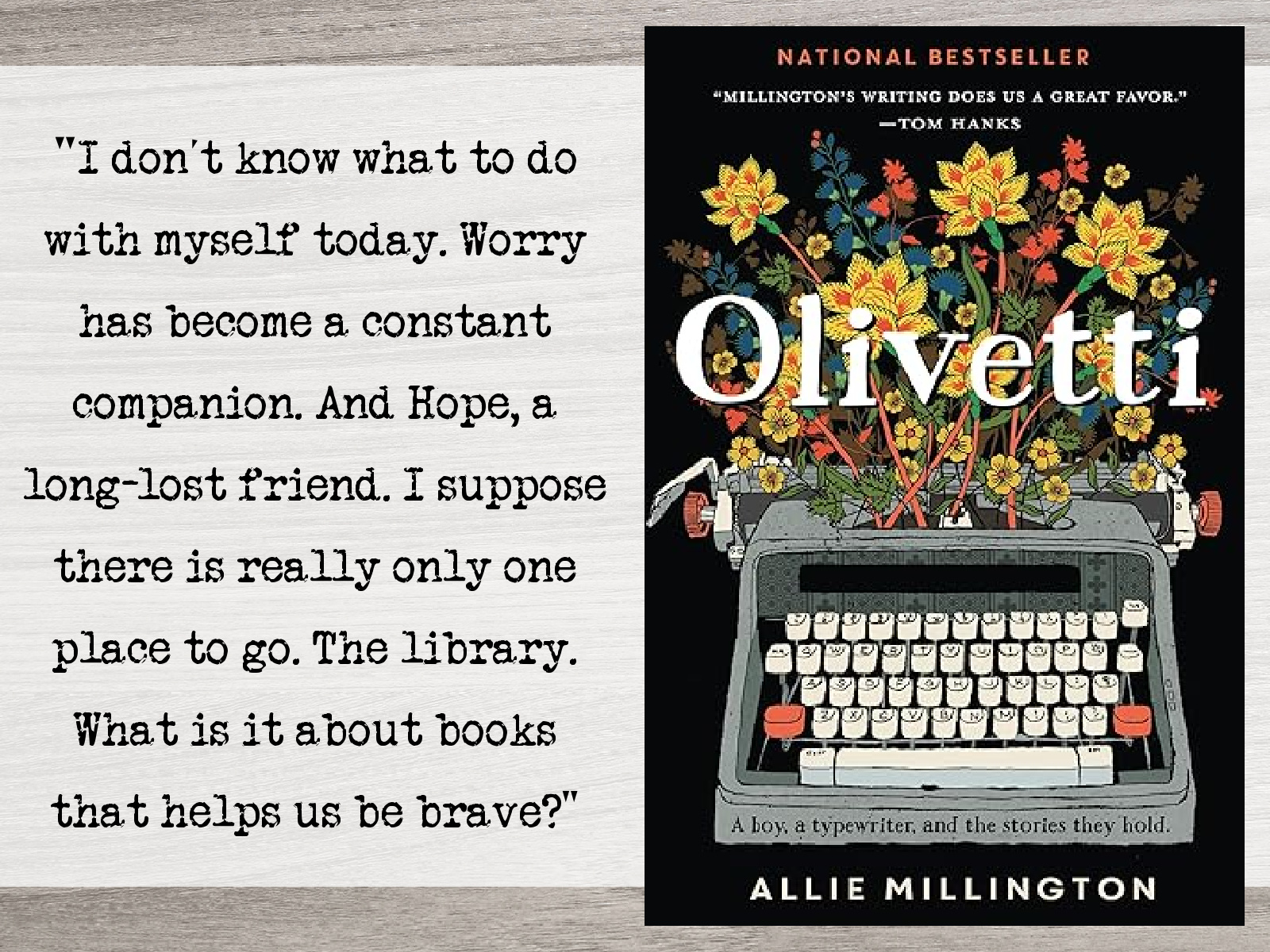
ADULT FICTION
The Same Bright Stars, by Ethan Joella: Jack Schmidt has dedicated nearly every one of his fifty-two years to the beachfront restaurant that has been at the heart of his family for three generations. Schmidt’s and its employees have always come first for Jack, but when DelDine (a group that is gradually snatching up Rehoboth Beach restaurants) makes Jack a generous offer for his eatery, he wonders if it might be time to step away from the restaurant business and begin to really live. Perhaps he will finally find the love, companionship, and freedom that have eluded him all his life.
When Jack experiences a series of harrowing events that lead to a shocking discovery about a long-ago relationship, he begins making huge changes, leading him to recognize that the love he’s always longed for might not have been as far off as he’d assumed.
This quiet, mid-life “coming of age” story was a welcome change of pace in my reading this summer. It’s a subtle novel with lovely messages about loyalty, found family, the pursuit of pleasure and purpose, and the small interactions and moments that forge an identity and a life. It has an incredible sense of place, an endearing and relatable protagonist, fascinating glimpses into the restaurant world, and a feel-good (but not exactly tidy) resolution that I adored. The plot dragged a little towards the middle, which is what kept this from being a 5-star read for me, but as a whole I really enjoyed this book and and this reading experience, and I look forward to reading more from Ethan Joella. His understated prose and depth of human understanding result in a book that is literary but entirely accessible. Great for fans of Anne Tyler and Elizabeth Strout.
My Rating: 4 Stars // Book Format: Kindle
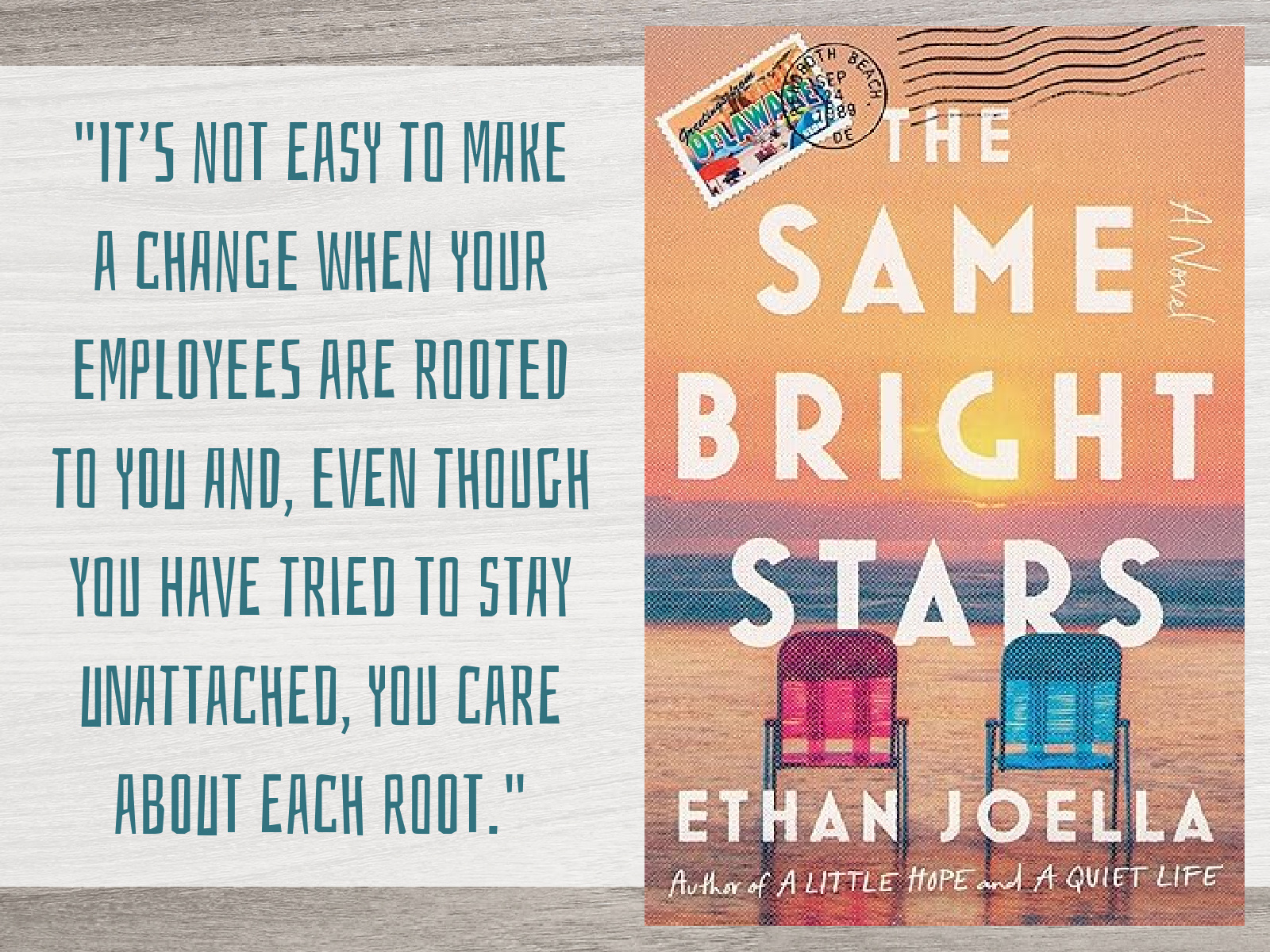
Drowning, by T. J. Newman: Six minutes after takeoff, a commercial jetliner carrying 99 passengers and crew crashes into the waters off of Hawaii’s coast. A majority of the passengers deplane, only to succumb to the flames from a post-evacuation engine explosion. Those who remain alive have no choice but to close the plane’s doors to the flames, and the vessel immediately sinks two hundred feet below the surface with twelve living passengers trapped inside. Time is short as the plane, teetering on the edge of an undersea cliff, takes on water and the survivors await rescue.
Among those within the plane are a brilliant engineer named Will and his preteen daughter, Shannon. And above water, the elite rescue team made up of qualified-but-desperate military members and civilians is being headed by Will’s soon-to-be-ex wife, Chris, a professional underwater welder who will do everything in her power to see that her loved ones are brought to safety.
I’m not usually one for the type of adrenaline rush this book promises, but eventually succumbed to readerly FOMO. With its riveting premise and breathless plot, I see how this has gotten so much attention, and though the nonstop action (including a few conveniently shocking but totally unnecessary and unbelievable plot twists) was a little much for me, I did enjoy this. (Though I’m not sure enjoy is the right word for a book with a high body count and even higher chance of elevating one’s blood pressure during reading.) The parent/child element and a few other touching scenes give heart to what might otherwise have been an unemotional thrill ride, and the moments of connection that we see among those aboard the sunken plan are relatable and lovely. And the courage and quick thinking of the heroic rescue team was incredibly inspiring.
I’ll admit that some of the action sequences, as well as the specifics of the mechanics and physics of the rescue, were hard for me to envision, and I had to skim several of the technical passages. I think I would have liked this one more in movie form than as a book (you won’t hear that from me very often!). But even as someone who is not at all engineering/science-minded, I was intrigued by the details of how a seemingly impossible rescue mission like this one could be carried out.
It probably goes without saying, but I’ll mention it anyway: you really don’t want to pick this one up mid-flight. But if you’re safely on land and looking for a fast-paced read that will have your mind spinning and your heart racing, you can’t go wrong with Drowning.
My Rating: 4 Stars // Book Format: Kindle
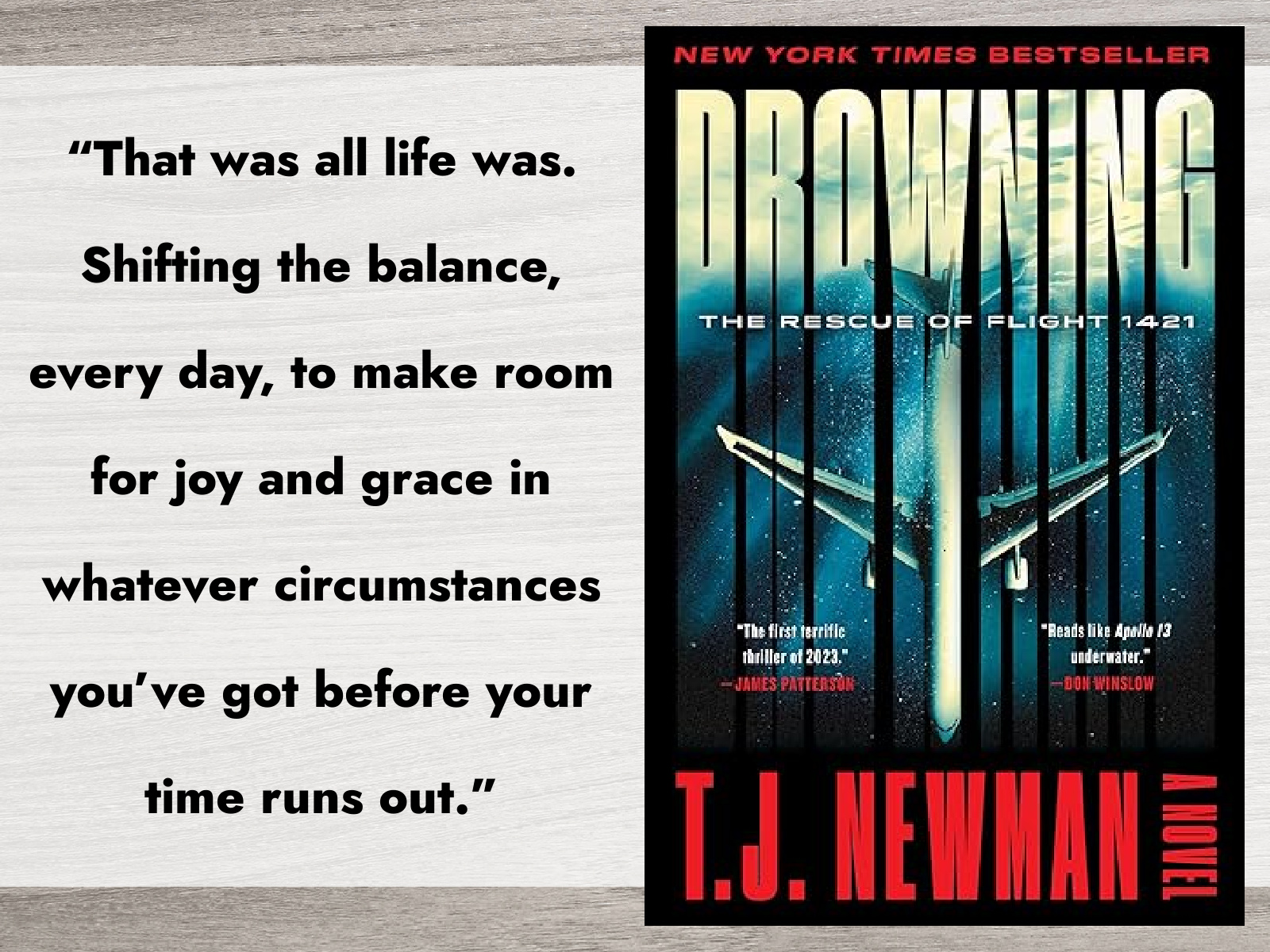
A Novel Love Story, by Ashley Poston: English professor Elsy Merriweather loves nothing more than escaping into a romance novel, where love is predictable and uncomplicated and every ending is a happy one. But in the years since the love of her life abandoned her at the altar, she’s given up on any hope of finding love herself. Books are safe, and no place is safer than discussing her favorite romance series (by deceased novelist Rachel Flowers) with her book club besties.
When plans for their annual book club retreat fall through, Elsy is set on making the trip alone. . . . until her car breaks down somewhere in the Catskills, and Elsy finds herself in a quaint town that feels a little too familiar. It’s not long before Elsy realizes why she knows this town and its residents: she has somehow found herself in the middle of Eloraton, the quaint setting of the Rachel Flowers books, where every day is the same, the burgers are always slightly burnt, the taffy is sweet, and it rains in the afternoon. Elsy knows this town and its members like the back of her own hand—all except for Anders, the brooding bookstore owner who never appeared in the Eloraton books and whom Elsy assumes must have been the intended leading man in the next book in the series. Elsy has no idea how or why she is here and wonders if she may get to play a role in achieving for Eloraton the storybook conclusion that Rachel Flowers never gave the town before her premature death. Is it possible for the town’s Happily Ever After to involve a happy ending for Elsy too?
I’ve often wondered what it would be like to step into the world of a favorite book, and I was thrilled when I saw that this was the premise of the latest novel from an author whose last book I adored. And the premise is truly wonderful, not only giving a fun glimpse into an irresistible town, but also exploring the romance genre, its many tropes, the tension between fictional happy endings and love in the real world, the parasocial relationships readers form with characters on a page (and whether or not these characters belong to the author or the audience), and the discrepancy between our expectations of stories and the expectations we have for ourselves.
Thought experiments aside, the story itself sadly did not work for me. There were too many characters and backstories to keep straight, and the storytelling is confusing and rushed. I am all about magical realism these days, but struggled with the lack of any real explanation for it here. There is almost no chemistry between our two main characters, and their dialogue is strained at best and ridiculously cheesy at its worst; lack of communication between them is also a driving point in their relational drama, which is always a deal-breaker for me in fiction. And then there was the prose that could have used a heavy edit (a quick Kindle search informed me that Anders’s eyes are described as “minty” no less than twenty times. Seriously, let’s get this author a thesaurus!)
This is not a book I will quickly forget, as it already has me thinking differently about my own bookish connections (and just maybe fantasizing about diving into a fictional world or two), but it is not a book I’d be quick to recommend.
My Rating: 3 Stars // Book Format: Kindle
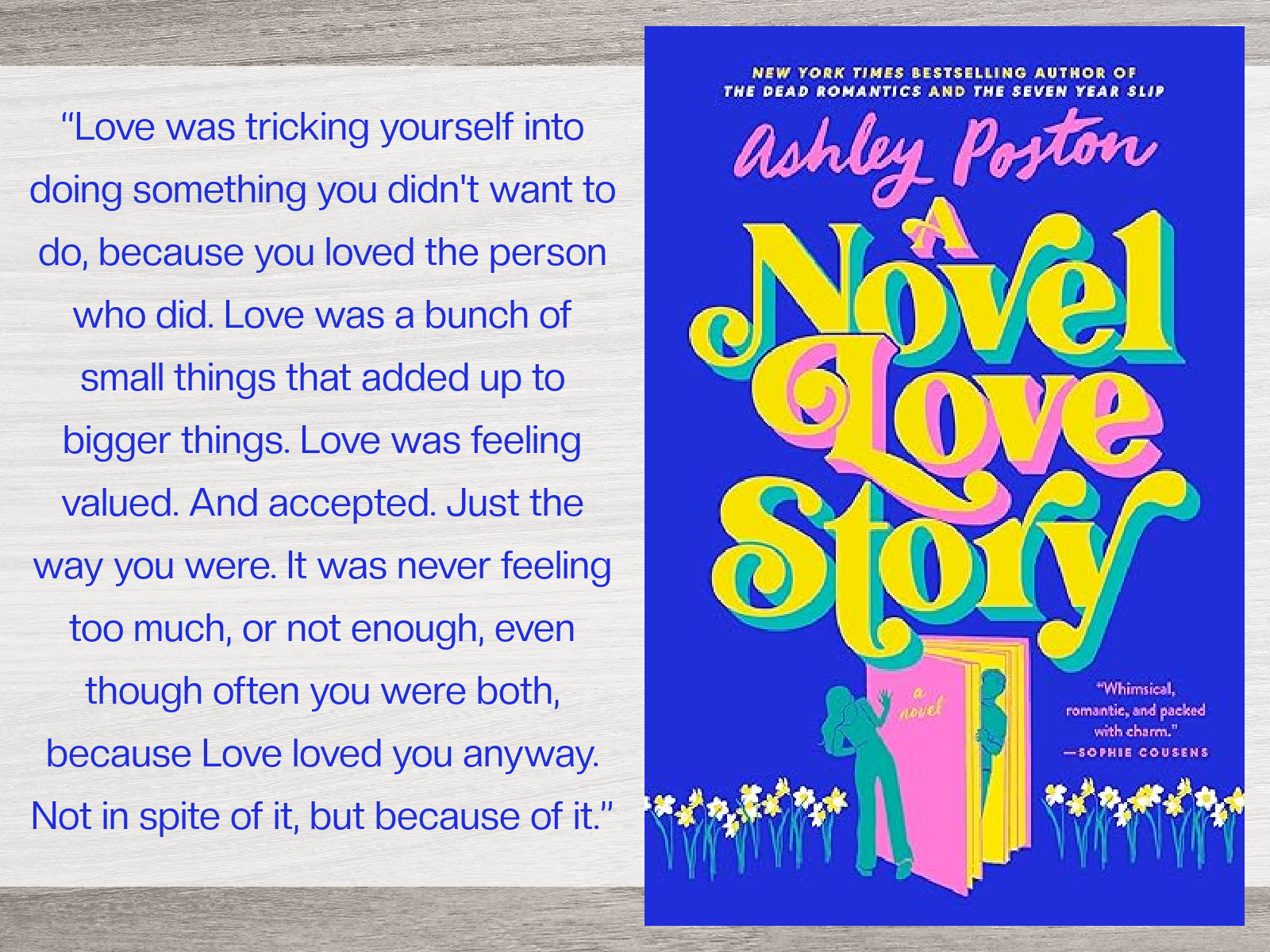
A Talent for Murder, by Peter Swanson: Middle-aged librarian Martha Ratliff gave up on love years ago, unquestioningly accepting the terms of the love curse placed on her as a teen. But when sweet-natured Alan came into her life and asked her to be his wife, she said yes. His job selling novelty clothing at teachers’ conferences means that Alan is away from home much of the time, which has never bothered Martha. But a year into marriage, Martha starts to realize how little she really knows about Alan. Why does she catch him practicing his smile before reentering the house after his trips away? Why did he come home from a conference with blood on his shirt? And why have women been reported dead in nearly every one of the cities Alan has visited in the past year?
Worried she might be married to a serial killer, Martha reaches out to Lily Kintner, a college friend who once saved Martha from a bad situation. Martha is certain that if Alan is up to something, Lily will discover what it is and know just what to do. But what the women uncover is far more sinister than Martha’s wildest suspicions.
I usually steer clear of serial killer novels, but Meredith’s description of this on a recent episode of Currently Reading had me intrigued. (I’ve read quite a few “Meredith made me do it” books lately!) Though I was unimpressed with the sterile writing style and found some of the plot points far too convenient (read: cheesy), I was easily drawn in by the spine-chilling premise and well-executed mystery that had just enough twists to keep me guessing. I also enjoyed the many literary references and librarian connections. There are quite a few squeamish moments, but not so many that this sensitive reader had to stop reading, and I’m glad that I saw the book to its surprising conclusion.
I didn’t realize before reading that this was the third in the series; it stands well on its own, though some storylines and character developments of the previous books in the series were likely spoiled. But I loved the character of Lily, a sort of vigilante detective, and might return to the series’ earlier books for more of her.
My Rating: 3.5 Stars (Rounded to 4 Stars on Goodreads) // Book Format: Kindle
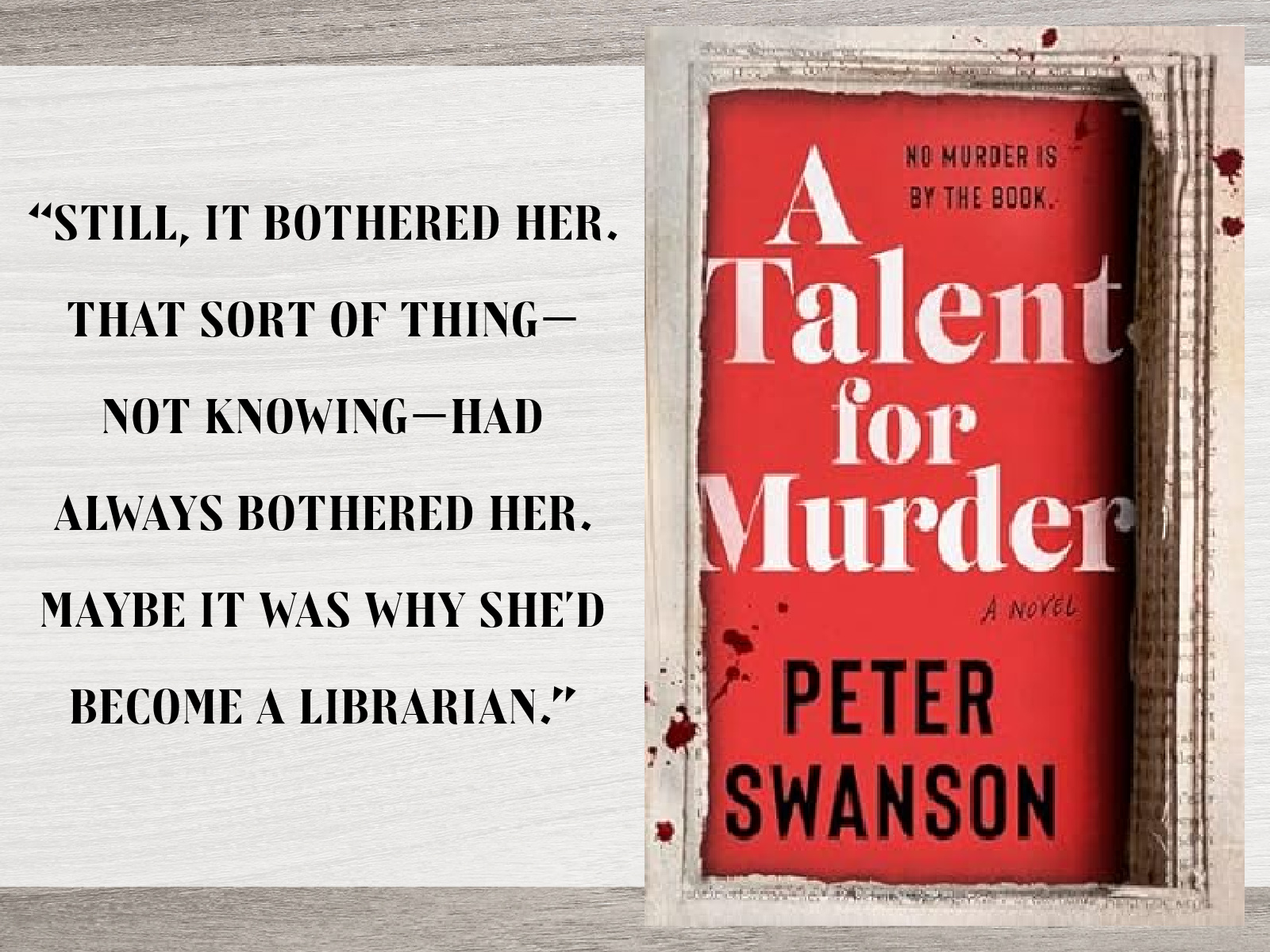
Spells for Forgetting, by Adrienne Young: Fourteen years ago, on the night of her high school graduation, Emery Blackwood’s life fell apart when her best friend Lily was murdered, her boyfriend August was accused of the crime, and the apple orchard that is the heart of Saoirse Island burned to the ground. In the wake of the tragedies, August and his mother fled the island, but Emery stayed behind and, years later, is running the family’s tea shop and surviving the monotony of island life. But one fall morning, the island that is rooted in folklore and magic gives signs that change is on the horizon. It comes in the form of August, who has returned to bury his mother. With his return, old secrets are unearthed as the island community is forced to reckon with crimes and deceptions of the past, and August and Emery revisit the love they once had and the trust that was lost.
After adoring Adrienne Young’s The Unmaking of June Farrow, I couldn’t wait to read more from this talented author and was disappointed that this was a definite miss for me. At the sentence level, the prose is spectacular—lyrical and atmospheric and tinged with magic and nostalgia. But I simply could not get into this story, with its awkward pacing and overly complicated mystery that simply fizzled by the end. There is an excess of (unlikeable) side characters that I couldn’t keep straight, and while I love the idea of a mystery/romance mashup, neither is fully realized, overshadowed by magic that is more occultic than the whimsical magic I favor in literature.
Despite my lack of enthusiasm for Spells for Forgetting, Young is clearly a talented author and I am holding out hope for her next book, which sounds excellent. Don’t miss the Letter from the Author (located after the Acknowledgements section) that speaks to Young’s inspiration for this story. It is relatable and lovely and the best part of the book.
My Rating: 3 Stars // Book Format: Kindle
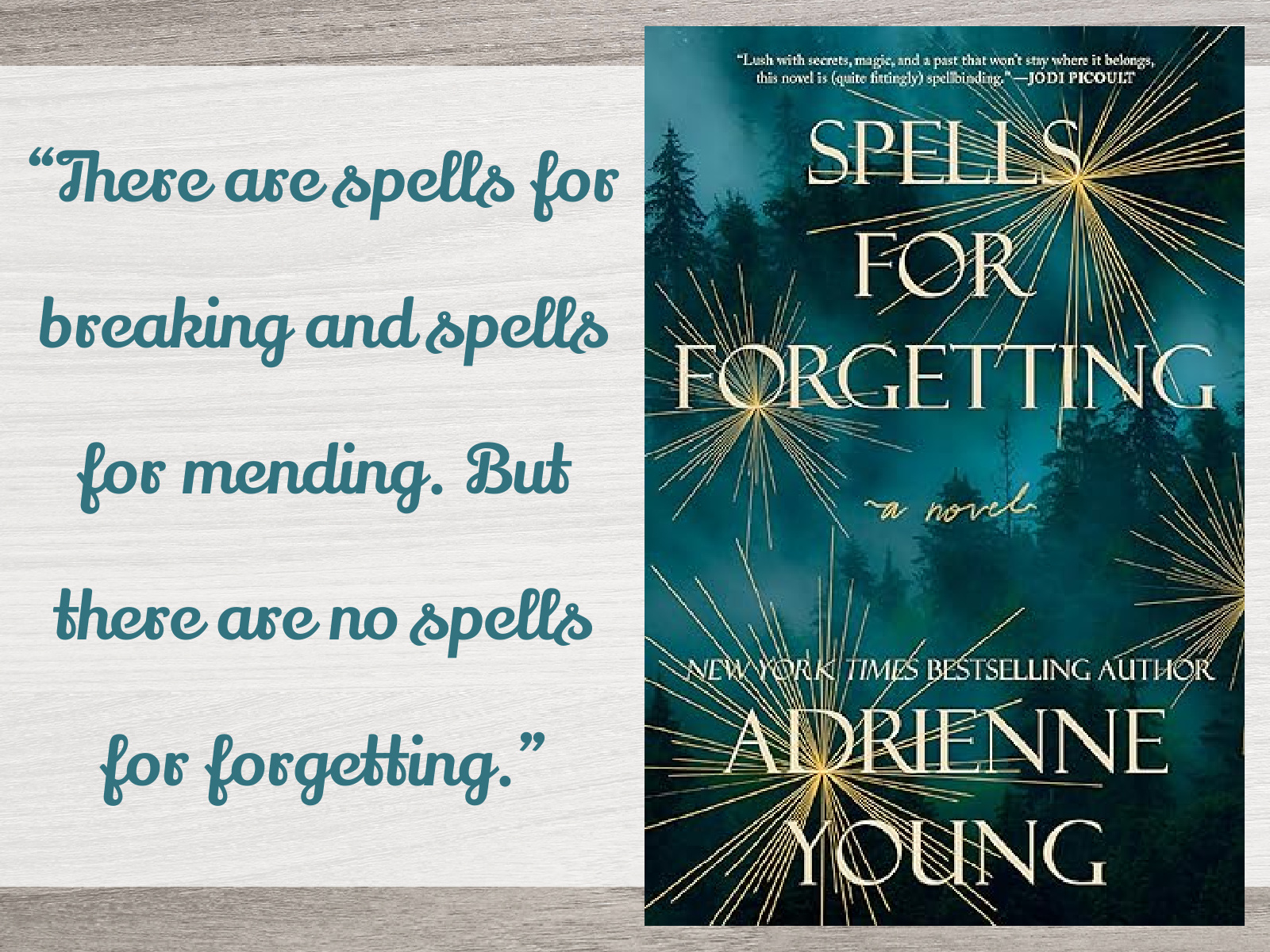
This will be my last Quick Lit post before I take a maternity leave from blogging. But I WILL continue reading and plan to share reviews of each and every book I’ver read when I come back. Until then, happy reading friends! And please let me know: what have you read and loved lately? I’m in search of compelling books to keep me company during middle-of-the-night nursing sessions, so please share your recs in the comments!
I'm reading the physical copy of Being Henry right now and really enjoying it. If you did the audio, go find a physical copy to see all the photos he includes. Thanks for the tip on the James Patterson book. I really dislike when authors make the book about their political views..either side..while it is disguised as something else. She Come By it Natural by Sarah Smarsh did this. So, I am removing it from my holds right now. So disappointing but I am glad to know now.
I felt exactly the same about She Come By It Natural.
Yes, I did a tandem read of Being Henry with a physical copy from the library and the photos added a lot!